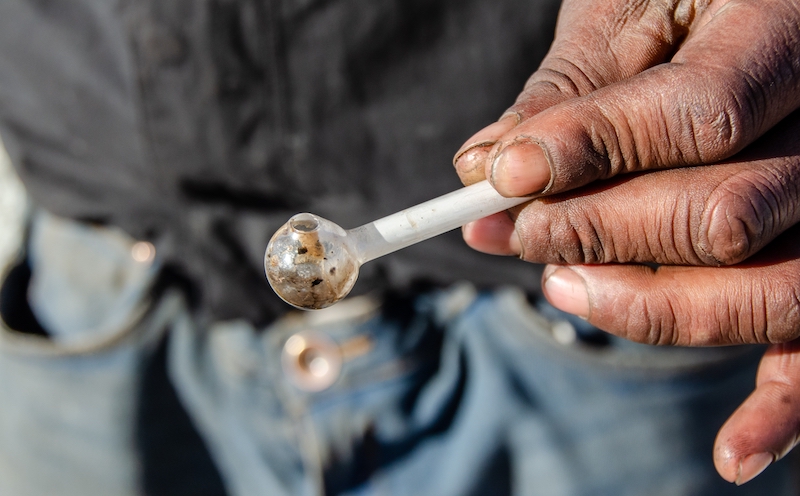We need to recognize the differences females and males experience when it comes to alcohol
This post is reprinted with permission from one of TreatmentMagazine.com’s go-to blogs about addiction, treatment and recovery: Recovery Review.
By David McCartney
When it comes to drinking problems, men and women have differences. Women tend to binge, have higher pre-existing trauma levels and can suffer more (or different) kinds of stigma and discrimination. They are also more vulnerable to physical complications and have greater mental health co-morbidity. Alcohol-related mortality is higher. In my work, I’m seeing more young women with alcoholic cirrhosis of the liver than ever before—a worrying trend.
Gender norms and societal expectations often result in stigmatization when the “alcoholic woman” deviates or is unable to fulfil prescribed gender roles (i.e., wife, mother). Such stigmatization results in a reluctance to ask for help.
Women face barriers to treatment. Issues around childcare and fear of losing custody, domestic violence, trauma and unemployment can act as deterrents. In addition, it has been found that some services are more tailored to men than women.”
Women and Recovery
Recovery can also be different. Women face barriers to treatment. Issues around childcare and fear of losing custody, domestic violence, trauma and unemployment can act as deterrents. In addition, it has been found that some services are more tailored to men than women. Recovery capital resources may be less available to women who can experience “oppressive experiences of social control.”
Wanting to Know More
It’s really good to see alcohol research focusing on women. Zetta Kougiali, Alicia Pytlic and Kirstie Soar took a look at qualitative studies which examined women’s pathways into dependence and then into recovery. They quote the David Best and Alexandre Laudet description of recovery as “a lived experience of improved life quality and a sense of empowerment.” The authors wanted their study to offer valuable knowledge towards understanding the different needs, mechanisms, and factors that can facilitate or hinder women’s recovery.
The Research
They examined 23 published studies, including one from Scotland. They identified four themes.
The pre-drinking “self.” Kougiali and colleagues found that women linked trauma and victimization experiences (e.g., childhood sexual abuse, growing up in abusive families, emotionally absent parents) in earlier life to the development of their drinking problems. These experiences had generated intense shame and feelings of not belonging, inadequacy and inferiority. The experience of having to conform to gender norms, feeling choices were limited and lack of ability to allow the ‘real self’ to emerge were all cited as relevant.
Alcohol as a corrective agent. Drinking was used as a technique to “correct” negative feelings through the creation of a “substitute self,” a “substitute reality” and temporary empowerment.
Escalation of drinking and the dependent self. Although alcohol was initially used to ease the difficulties, a tipping point came when this could not be maintained. Paradoxically, the use of alcohol started to create the same problems that it had been used to tackle, resulting in despair and hopelessness linked to shame and stigma. A sense of being trapped developed.
The recovering self. The process of recovery happened when power was transferred from external things, like alcohol and other people, back to ‘the self’. Although turning points varied, they were connected in the sense that a belief that drinking was no longer sustainable developed. The authors say, “Participation in recovery groups helped gradually move from concealing perceived problematic aspects of personality to increased self-expression, sense of belonging, and empowerment.” Going to recovery meetings also helped develop a social network that countered the loneliness and emptiness that can accompany early recovery.
There were benefits to attending women-only meetings, though interestingly, most women stressed the importance of attending mixed meetings too, even though some women experienced distress when disclosing their past in mixed meetings.”
According to a study by Amy R. Krentzman and her colleagues, women make up a third of Alcoholics Anonymous membership and do better than men in terms of outcomes. However, for women attending AA meetings there can be controversy over the concept of powerlessness. In this study, participants identified powerlessness as a helpful concept, as they did other features of the AA program, such as self-awareness and self-reflection, group membership (sense of community and belonging) and sponsorship (sense of connection).
There were benefits to attending women-only meetings, though interestingly, most women stressed the importance of attending mixed meetings too, even though some women experienced distress when disclosing their past in mixed meetings. This led the authors to suggest that women with adverse experiences and those in early recovery should be “informed both of the implications and potential benefits of participating in mixed-gender meetings.”
This Recovery Review post is by David McCartney, who is an addiction medicine specialist and clinical lead at LEAP, a quasi-residential therapeutic community addiction treatment program in Scotland. He trained as a family medicine practitioner and spent much of his career in practice in inner-city Glasgow. Having retrained in addictions, he now works exclusively in the field and until recently was an advisor to the Scottish government on drugs policy. He is a member of the Royal College of General Practitioners. His opinions expressed here don’t necessarily represent the views of his employer. Find more of his writing, as well as a thought-provoking range of articles, insights and expert opinions on treatment and addiction, at RecoveryReview.com.blog.
Photo: Joel Muniz













